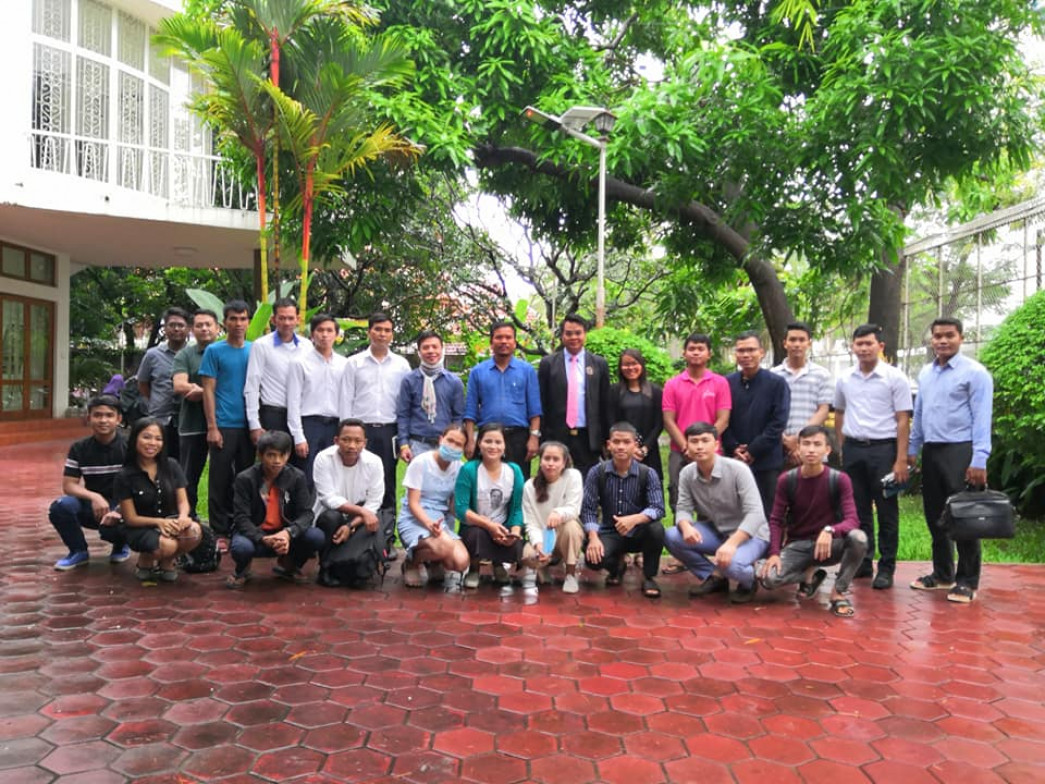
Not an Obligation, But a Necessity

Written by: Chhuon Vanndasambath, a 4th year student majoring in Political Science and International Relations at Paragon International University
Edited by: Heng Kimkong, a Visiting Senior Research Fellow at Cambodia Development Center and a PhD Candidate in Education at The University of Queensland, Australia

(Photo was taken on Saturday, 17th October 2020 at KAS Cambodia office after Politikoffee Forum on the topic: Current Cambodian Political Situation: Readiness for the Coming Elections.)
In a democratic society, it is very important for every citizen to participate in political affairs. Since democracy gives power to the ordinary people, they have the chance to decide who can be their leader whom they think will protect and respect their rights, decision, and desire. When a democratic state lacks political involvement from the people, different social issues may arise. Therefore, the citizens' basic understanding of their roles and responsibilities is crucial. To be a responsible citizen in a democratic state, one does not need to be involved directly in politics, but it is vital to have knowledge of the current political development and take part in shaping the political discourse.
In this article, I will discuss the role of a concerned citizen in a democratic country. First, it is not an obligation for everyone to prioritize their attendance in politics because it is their choice to either learn deeply about politics or put their focus on other activities such as study and work. But everyone needs to know what it means to be a responsible person in a democratic state as their lack of involvement or participation in politics may allow the politicians to do something that may not reflect the interest of the majority.
Second, everyone is not obligated to join in events of political nature such as protests, demonstrations, or political campaigns that they think may bring risks or insecurity to them. However, there is a need for them to take part in voicing their concerns or criticism about the government's actions or policies that may have effects on their daily lives. The indifference or ignorance about politics may harm their interests, their community or their country as a whole.
Finally, although everyone is not obligated to be a politician to become a good citizen in a democratic society, it is necessary for them to take part in voting to determine their future representative for the development of their community and country. This is not only important to them, but it is also vital to the future of the country and the next generation.
So, why do you wait for your society to be improved as you wish when you do not fully take part in shaping the politics in your country? One country could not be developed if there are no citizens taking part in politics to hold politicians to account. In this regard, participation from the citizens is vital to the sustainability and development of a nation because their voices and decisions can lead to a new outcome and inform government policies that prioritize their needs and interests. Without meaningful political participation, people will likely become victims of politics as they are exploited by the politicians or any group of political elites who will make decisions on their behalf without regard to their pressing needs and concerns.
Remember, politics may not be your obligation in your daily life, but you need to be involved in politics as it has the power to affect your life and future as well as the future of the next generation.
*This blog is produced with the financial support from the European Union and The Swedish International Development Cooperation Agency through Transparency International Cambodia and ActionAid Cambodia. Its contents do not reflect the views of any donors.




